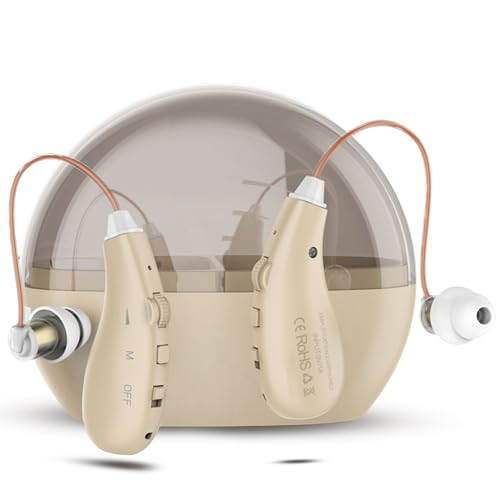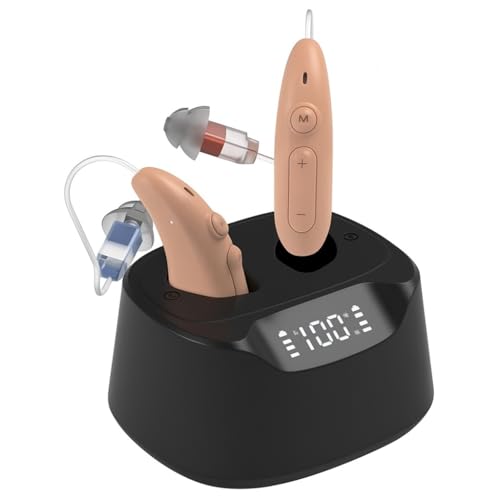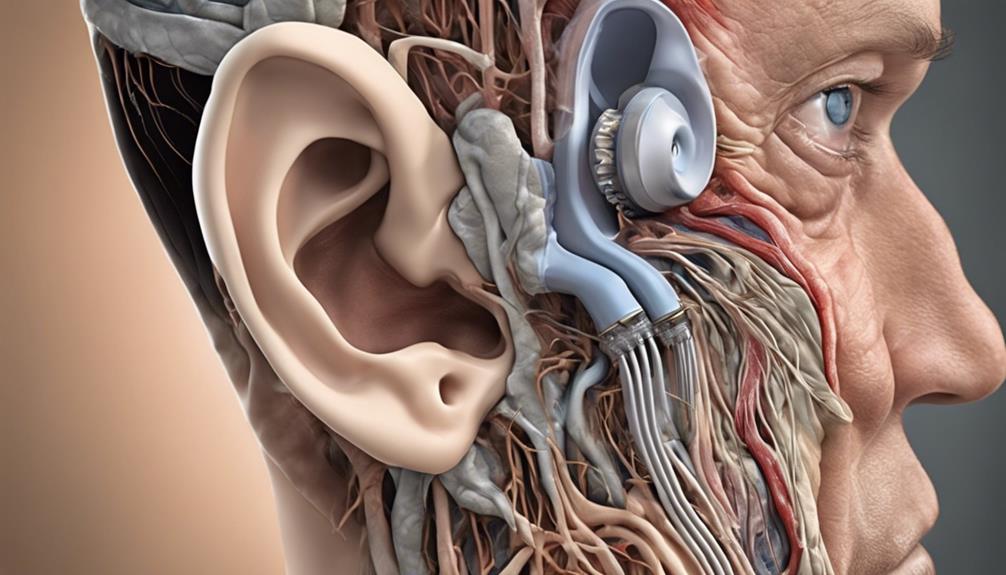When it comes to insurance policies, navigating the various options for cochlear implant coverage can feel like looking for a needle in a haystack. But fear not, as we delve into the details of Tricare’s policy regarding coverage for these life-changing devices.
From eligibility criteria to the process of obtaining approval, our guide sheds light on the ins and outs of Tricare's policies.
Curious about what financial considerations may arise or where to seek additional support? Stay tuned to uncover the comprehensive roadmap we've laid out for you.
Key Takeaways
- Tricare covers cochlear implants for eligible beneficiaries, including Tricare for Life users.
- Approval requires a diagnosis of profound bilateral sensorineural hearing loss and compliance with post-implantation habilitation.
- Financial aid options like the Dallas Hearing Foundation and UnitedHealthcare Children's Foundation can assist with costs.
- Medicaid covers cochlear implants for children under 21, emphasizing the importance of exploring various support options.

WASOCA Hearing Aids for Seniors, Hearing Aids Rechargeable with Bluetooth, Hearing Aid APP Control, Hearing Amplifier for The Hearing Loss, Hearing Your Voice, FSA&HSA Eligible
Hearing Aid & Bluetooth 2 in 1 : Hearing aids realize hearing aid and Bluetooth function 2 in...
As an affiliate, we earn on qualifying purchases.
Overview of Tricare's Coverage for Cochlear Implants
Tricare's coverage for cochlear implants encompasses a comprehensive range of benefits for all eligible beneficiaries, reflecting a pivotal shift in the healthcare policy landscape. This expansion in coverage under Tricare now includes Tricare for Life users, ensuring that a wider group of beneficiaries can access cochlear implants. The retroactive effective date of June 30, 2016, marked a significant milestone in enhancing support for individuals with hearing loss.
Regional contractors began processing claims for cochlear implants under the new policy as of December 7, streamlining the process for beneficiaries seeking this vital intervention. Specific criteria have been established to determine eligibility for coverage, ensuring that those with qualifying hearing loss can benefit from this policy change.

Banglijian Rechargeable Hearing Aid for Moderate to Severe Hearing Loss Ziv-206 for Seniors Adults with Noise Reduction Adaptive Feedback Cancellation-Two Types of Sound Tubes(Two Units)
EASY USE AND COMFORTABLE FEATURE: Banglijian is a professional hearing aid manufacturer and seller, which have produced a...
As an affiliate, we earn on qualifying purchases.
Eligibility Criteria for Tricare Coverage

Expanding access to cochlear implants through Tricare's coverage involves meeting specific eligibility criteria based on the severity of hearing loss. To qualify for Tricare coverage of cochlear implants, beneficiaries must meet certain criteria that demonstrate the need for this intervention. The table below outlines the eligibility criteria for cochlear implant coverage under Tricare:
| Eligibility Criteria for Tricare Coverage |
|---|
| 1. Diagnosis of profound bilateral sensorineural hearing loss. |
| 2. Limited benefit from appropriately fitted hearing aids. |
| 3. Medically necessary evaluation by an audiologist and otolaryngologist. |
| 4. Compliance with post-implantation auditory habilitation. |
| 5. Approval from Tricare prior to the cochlear implant procedure. |
Meeting these criteria is essential to ensure that individuals receive the necessary support for their hearing loss through Tricare's coverage of cochlear implants. Additionally, the recent policy change has extended coverage to include Auditory Osseointegrated Implant (AOI) devices, further expanding the options available for beneficiaries with hearing impairments.

Soundure Hearing Aids for Seniors, OTC Hearing Aids for People with severe Hearing Loss, Smart Noise Reduction Chips, Stand for 80h, One-Button Operation, Comfortable Wearing
Clearer Conversations in Daily Life: These hearing aids use digital noise reduction technology to make voices sound clearer...
As an affiliate, we earn on qualifying purchases.
Process for Obtaining Tricare Approval
When seeking approval for cochlear implants through Tricare, it's imperative to ensure that the procedure is medically necessary as determined by a healthcare provider. To navigate the process effectively, follow these key steps:
- Submit a request for prior authorization to Tricare, including relevant medical documentation and details on the proposed cochlear implant surgery.
- Tricare may request additional information such as audiograms, medical records, and a statement of medical necessity for cochlear implantation.
- The approval process involves a thorough review by medical professionals to assess the necessity and appropriateness of the procedure.
It is crucial to work closely with your healthcare provider to gather all required documentation and information to support the need for cochlear implants. By following these steps diligently, you can increase the chances of obtaining Tricare approval efficiently. Once approval is granted, beneficiaries can move forward with scheduling the cochlear implant surgery with an authorized provider.

B501 Professional Hearing Aids for Severe Hearing Loss Seniors- 45dB Gain & 16-Channel Precision, Anti-Whistling Tech, 50H Battery with Charging Case, Self-Fitting Discreet Design
45dB Broadband Response for Severe Hearing Loss. Customized gain amplification up to 45dB covers even profound hearing loss,...
As an affiliate, we earn on qualifying purchases.
Cost and Financial Considerations

Navigating the process of obtaining Tricare approval for cochlear implants involves considering the cost and financial implications as individuals without insurance coverage may explore alternative options for assistance. For those under 65, Medicare or Medicaid could potentially cover cochlear implants based on disability qualifications, offering significant financial assistance for the procedure.
ACI Alliance actively advocates for enhancing access to cochlear implantation through traditional health insurance, aiming to provide support to those in need of financial assistance. Additionally, exploring Disability Evaluation under Social Security may lead to health insurance coverage and payment assistance for cochlear implants.
Independent social service organizations like the Dallas Hearing Foundation and UnitedHealthcare Children's Foundation also offer financial aid to individuals seeking cochlear implants. By qualifying for disability benefits, individuals can potentially access health insurance coverage and payment assistance, helping to manage the financial aspects of undergoing the cochlear implant procedure.
Additional Resources and Support for Cochlear Implant Coverage
Accessing comprehensive resources and support is crucial for individuals seeking coverage for cochlear implants through various avenues such as TRICARE, state programs, and private health insurance plans. When navigating coverage for cochlear implantation, it's essential to explore various support options to ensure access to necessary medical services and procedures. Here are key resources that can assist in securing coverage:
- Medicaid: Medicaid is mandated to cover cochlear implants for children under 21, providing a crucial avenue for families seeking financial assistance for this procedure.
- TRICARE: As a federal health plan, TRICARE offers coverage for cochlear implants, ensuring that eligible beneficiaries have access to this vital medical service.
- Cochlear Implant Companies: In cases where coverage is denied, reaching out to cochlear implant companies can offer valuable support in navigating insurance reimbursement processes, potentially aiding in securing coverage for the hearing aid.
Frequently Asked Questions
Does TRICARE Cover Cochlear Implant?
Yes, TRICARE covers cochlear implants for all beneficiaries. The policy change is effective retroactively to June 30, 2016.
Regional contractors will process claims starting from December 7. Specific criteria for qualifying hearing loss are in place for coverage.
Retirees need to meet certain criteria for coverage. TRICARE's coverage for cochlear implants ensures access to this vital treatment option for those who need it.
Does Insurance Cover Cochlear Implants?
When it comes to insurance coverage for cochlear implants, it's like navigating a maze of policies and fine print. It's essential to understand the nuances of your plan to ensure proper coverage.
While many private employer health plans and federal programs like Medicare, TRICARE, and VA offer benefits for cochlear implants, there can be variations in coverage.
Exploring available options and advocating for comprehensive coverage is key in this journey.
How to Get Free Cochlear Implant?
To get a free cochlear implant, individuals may explore options like disability benefits, social service organizations, and Medicaid programs. Qualifying for disability benefits can lead to insurance coverage and payment assistance for cochlear implants. Organizations like the Dallas Hearing Foundation and UnitedHealthcare Children's Foundation offer financial aid.
Medicaid covers cochlear implants for children under 21, providing a potential avenue for free implants. Accessing these resources can help eligible individuals obtain a free cochlear implant.
How Much Will Medicare Pay Toward a Cochlear Implant?
When it comes to Medicare coverage for cochlear implants, the program typically pays 80% of the approved amount for surgery and related services. Beneficiaries are then responsible for the remaining 20%, unless they have supplemental insurance.
Medicare Part B covers outpatient services like diagnostic testing and follow-up visits associated with cochlear implants. Coverage is available for those with qualifying hearing loss who meet specific criteria, subject to program conditions and requirements.
Conclusion
In conclusion, navigating insurance coverage for cochlear implants can be complex but understanding the options available, such as Tricare, can make a significant difference in accessing necessary care.
For example, Sarah, a retired military spouse, was able to receive approval for her cochlear implant through Tricare, allowing her to regain her hearing and improve her quality of life.
By exploring the resources and support outlined in this guide, individuals can confidently pursue coverage for cochlear implants and experience the life-changing benefits they provide.










